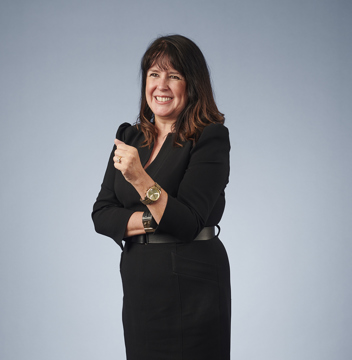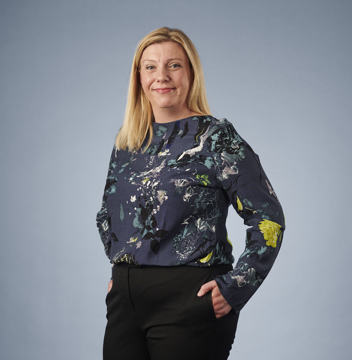Let's Talk Menopause
Useful resources
Our guest speaker Ruth Devlin from Let’s Talk Menopause can provide tailored sessions to suit your organisation.
Topics covered in a standard comprehensive overview:
- Signs & symptoms of the menopause
- Diagnosis
- Ways to cope with symptoms; lifestyle choices, alternative options, HRT
- Menopause within the workplace
- Q&A
Follow-up sessions can be tailored to suit your staff’s needs and time constraints, some topics to consider:
- How to approach your GP
- A more in-depth look at HRT
- How to support your colleagues, where do managers go for support and resources
- Lifestyle choices, complementary therapies, and stress management
- Online group CBT courses (4 x 1 hour + follow-up 1-hour session)
The number of attendees is not capped except CBT course (max 8 attendees per group).
Please get in touch at either 07709799718 or email ruth@letstalkmenopause.co.uk
Q&A from the session
Q. Hyperthyroid - hypothyroidism is important as oral HRT can affect the thyroid function?
You can either go with it and accept your dose and tests may be a bit wayward for a time, or you might find it easier to go on non-oral HRT (eg gel/patch). Hyperthyroidism can lead to earlier menopause.
Good bone health is even more important for menopausal women who also have thyroid dysfunction.
Q. Post menopause - should a blood test to check hormone levels oestrogen and testosterone be an accurate reflection?
The blood test that is talked about regarding menopause is generally a test for something called follicle-stimulating hormone (FSH). Pre-menopausally, each month FSH stimulates the ovaries to start to produce follicles, one of which will go on to be released as an egg.
During menopause, these levels become elevated but very fluctuant, so you might get a different level if you had 2 tests on the same day. This is why we don't recommend tests in people over the age of 45 - the levels are bound to be increased at that age (because whether you have symptoms of menopause or not, your ovaries will be declining in function), and because of the variations throughout the day, you can't rely on a single figure to say you're in any particular stage of the menopause. Post-menopausal, the levels do stabilise but may be at a different level for each person. There's not a single particular level that will either give you symptoms so that we can say "at this level, you are officially perimenopausal" nor a specific cut-off where we can say "at this level you are officially post-menopausal". We go by symptoms.
Testosterone is a little different - the levels can already be declining before menopause, but do tend to be less fluctuant than FSH levels. However, only about 2% of testosterone is unbound in the blood, so testing blood testosterone levels is unhelpful. Something called a free androgen index can be measured to give more of a guide, but it remains not particularly accurate, and there is in fact no universally agreed normal range for testosterone levels in women. Usually, it is only measured as a safety guide when a woman is prescribed testosterone replacement.
Q. Does every woman who has chemo/ radiotherapy go into menopause?
No. The chemo/radiotherapy has to affect the ovaries. Radiotherapy to the pelvic area may do this, some chemotherapy agents are more likely to affect the ovaries than others, and your age when you receive treatment can also have an effect.
Some women can find changes to their menstrual cycle during chemotherapy are temporary.
Q. If you have had a hysterectomy (with ovaries remaining), how do you know when the menopause has passed? Online says that the menopause is over when your periods stop and it also states that people with hysterectomies (with ovaries remaining) usually go into menopause within 5 years of having the hysterectomy.
Periods stopping is a handy way to tell if you are menopausal - but we can only officially say that you have gone through menopause once you have been period-free for 12 months (because periods can slow down too, so months can pass between periods). If you don't have a regular cycle for example because you are on a hormonal contraceptive, or if you don't have a womb, it is harder to tell when you have moved from perimenopausal to menopausal to postmenopausal.
In fact, the distinction doesn't matter hugely, we treat the symptoms if you wish whether peri-or postmenopausal. The terms are just about describing where people are in terms of the menstrual cycle - not in terms of symptoms. Some people will have a long peri-menopause, and some a long post-menopause. But yes, earlier menopause is more common in people who have had a hysterectomy. For those with no cycle due to hormonal contraceptives, depending on the type of contraception, we recommend remaining on contraception until the age of 55, but again, the distinction between whether you are perimenopausal, menopausal, or postmenopausal is not important, what matters is the symptoms.
Q. Can conditions such as Endometriosis and Adenomyosis have an effect on menopause symptoms later? (Other than just being glad periods are ending!!)
The variation in the menstrual cycle can affect symptoms of endo/adeno, making, for most people, once the hormone levels drop, the symptoms from endo/adeno also stop.
For a very unlucky few, however, the cells remain activated and endo/adeno symptoms can persist postmenopausally. Some of the symptoms of endo/adeno overlap with menopausal symptoms, which can make it hard to tell what's due to menopause. And of course, HRT can affect symptoms of endo/adeno too.
Q. What if you don't get periods due to being on the pill or coil? I have other health problems and cannot have periods due to not being able to cope with them on top of my other health problems?
I'm not sure if you mean how can you tell if you're menopausal if you don't have periods - in which case we go by symptoms. Or perhaps you mean when do you stop the contraception - in which case see above, we normally advise stopping at age 55.
Q. Insomnia is reported as hugely impactful on daily life and working life. Any suggestions?
Insomnia is a major problem generally these days. Lots and lots of suggestions - look at your environment, cool, dark and quiet. Avoid white light near bedtime. Keep your bedroom for sleep and sex - not for scrolling on your phone! Try to get some daylight (hard in winter!) within the first hour after waking up. It's totally normal to go through a sleep cycle which means you enter a light sleep regularly which it's easy to wake from.
This means it's not unusual to wake up several times a night - the key is to try not to catastrophise when you wake up, because as soon as you tense up, it's much harder to go back to sleep. Just notice that you're awake, accept it as a normal part of the sleep cycle, and remember that even if you don't get back to sleep, you'll cope tomorrow no matter what life throws at you - we've all had sleepless nights and got through the next day, as soon as you start to worry about how you will cope on disrupted sleep, again you tense up and are much less likely to get back over to sleep. CBT can really help.
Q. Do you tend to find that men as well as women attend your talks?
Yes, and Ruth does men-only talks too.
Written by

Mandy Laurie
Partner
Employment
Mandy is head of our Employment division, with a particular focus on Employment Tribunal advocacy, large scale restructures and contentious matters.

Emma Smith
Inclusion & Wellbeing Manager
Responsible Business
Emma is the Inclusion & Wellbeing manager and leads on diversity and inclusion, as well as employee health and wellbeing across the firm.
Related News, Insights & Events

Tech & IP Conference 2025: Evolution or Revolution?
07/05/2025 - Everyman Cinema, St James Quarter, Edinburgh
Our annual Tech & IP Conference will explore how businesses can take advantage of change to evolve, build resilience, and leverage competitive advantage through powerful technologies and innovation.

Burness Paull promotes five lawyers to partner
01/04/2025
Burness Paull has promoted five of its lawyers to partner as the firm prepares for further growth in key areas and continues to invest in developing homegrown talent.

Responsible Business Report 2024: An update on our ESG journey
21/02/2025
Our annual Responsible Business Report details our progress, offering transparency and accountability around our actions and setting out some of the highlights since our last report.



